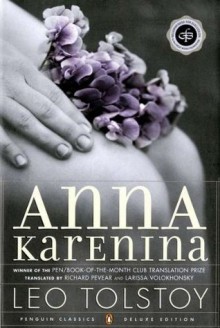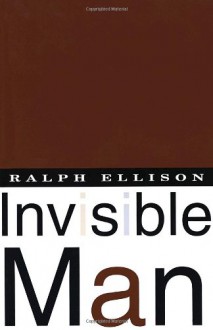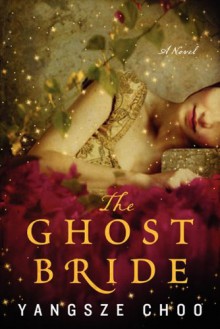
The foremost impression I'm left with, since I have the last part very present, is this literary symmetry: Anna takes about sixty pages to come in, by train, and leaves the book sixty pages from the end, also by train (yes, I know, some dark humor).
Next, also with the end very present, this sense that in the end, Levin and Ana essential difference is that when doubt harasses them, Levin goes back to what feels natural to him and trudges on, and Anna gives into despair.
For all that it's name comes from the woman, larger than life in the outside, and deeply uncertain on the inside, it was Levin the vehicle for most of the author treatise on... well, everything: agrarian reform, women's education, religion, politics, war, ideologies... At first I was interested. Passing the middle point, I just wanted the author to get on with it. I've gone over this many times: I have little patience for authors trying to educate or reform me through fiction.
While the Levin/Kitty side of the novel carries the most heart-warming bits, it's also choke-full of opinions, so whenever we got to it, instead of feeling like I was resting from Anna's turbulence, I started to feel dread at the amount of pages Tolstoy was about to bore me with his "insight". I totally get why the movies gloss so much over this side of the equation.
And it is some type of equation, or coin. I wonder if the author was trying to make Anna into a personification of reason, given the stab he takes at it in relation with faith in the end, with Levin as this second, him being unable to properly express himself, but finding peace with his own being at the end; Anna all poise, yet false, forever uncertain inside, speech coming out pleasant while thoughts looped and spun in place without answer. Also, passion vs. love. And romantic feeling against filial.
As for characters (beyond the two protagonist, because, you know, so mired into the theme), they were all so damned well fleshed out:
Vronsky with his honorable selfishness: I know it sounds like a contradiction, but the guy truly does not realize the damage he does, and in his own way, he follows a code of conduct strictly. It's horrifying.
Karenin... *sigh* Anna calls him a robot. At first, it looks like she's just over-reacting to her new feelings, ascribing the worst to her obstacle. It turns out she is over-reacting, but she's also somewhat right. The guy is a wonder of self-discipline, in his life and even where his feelings and though process is concerned. The way he twist and rearranges facts and ideas to suit himself is a thing to read. While writing this, I also wonder if his influence wasn't arresting much of Anna's internal disorder, if she didn't loose what little was keeping her peace when she left him, or if it was the other way around: a wild mare kept in tight reign, that suddenly tasted freedom and galloped non-stop into the abyss, with Vronsky spurring her.
Kitty with her innocence; Vronsky breaks her heart, but after some false steps, she comes on the other side just as sweet, and wiser.
Dolly and her big heart. Stiva forever on the rope by the miracle of his social nature. Sanctimonious Lidia. Betsy, so liberal but in the end unwilling to forsake society's constraints. Sergey and his empty rhetoric. Nikolay and his nihilism. Varenka.
I guess there was much more in all those many pages than proselytism. You can disregard this whole paragraph, I'm claiming that Levin ruined me, but really? Last night I went to sleep, and kept wondering: how much of these explorations impulse change? Much of what is discussed in dialogues here feels like sides talking to hear themselves, not to seek understanding, and I was left thinking about social change, and whether writing heralds it, or just meanders over what society has already started to accept or war upon. I noticed many of the topics expounded on came and passed, discarded by history, yet things that are barely touched upon, like womens rights and education became an issue not long after that endures. What I'm trying to say, and I'm treading on deeply personal and weird territory here, is that I started to doubt how much social commentary in literature looks forward, and how much it's just a belly-gazing soap box for the author.
So, *wheoo!*, that's a looong commentary on a loooong book, and I'm still unsure what I'll rate it. No, I do know. It's really good, and as a character study is great, but I don't think it perfect because, for me, if you are going to fill a novel with ideology, it has to age well, and it has to engage even on those bits. So 4 stars.



 Log in with Facebook
Log in with Facebook 











